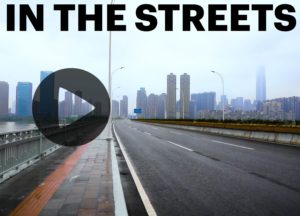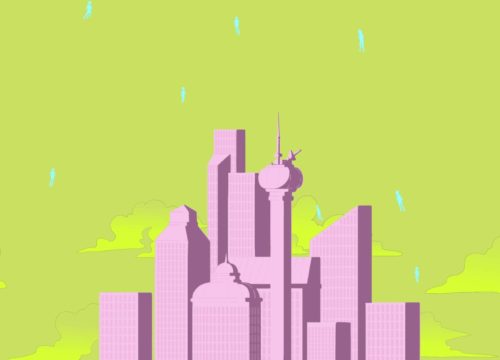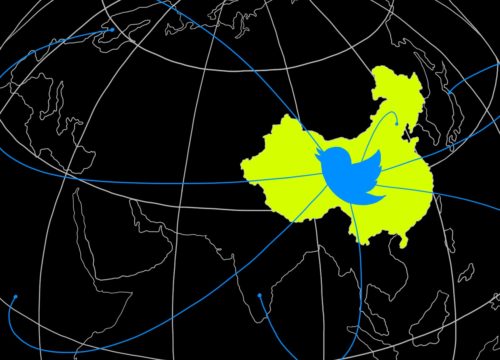Donna Dillenberger on blockchain technology in China
The 2008 baby formula scandal that sickened 300,000 babies and resulted in six premature deaths raised concerns about China’s food safety. We spoke with Donna Dillenberger, global leader of enterprise systems at IBM, about how blockchain technology can help create a more transparent food safety environment in China.
What is blockchain and why do we care about it?
Blockchain is a way of recording information that provides decentralized trust. And why we should care about it is because there are a lot of processes that occur in the world right now that would be more efficient if there was this decentralized trust.
So, for example, right now, for me to transfer my house to you, at least in the U.S., we would need lawyers, we would need notaries, we would need people who verify that that you have enough money in your bank account, and then they’d have to verify that you transferred it to me. But the blockchain, what can be done is that you could post like, say, my house is $200,000. You know you could post $200,000 on the blockchain or a smart contract that says that when I transfer my title to you, that smart contract automatically executes and puts $200,000 in my bank account. And if the money doesn’t get into my bank account within three days, then the title automatically transfers back to me.
So here we don’t need lawyers, we don’t need notaries. We need people in the middle. And that saves money, that saves time.
How did it start?
Blockchain started in 2009, in response to the Great Recession that happened in the U.S. And so it’s nine years later. I think more people have heard about blockchain because there are more blockchains that have been created, and because there’s other uses for blockchain besides cryptocurrency. So I think it’s being used more. That’s how people hear about it. The Great Recession in the U.S. made a lot of people distrust banks and governments. And so the people who started the bitcoin blockchain, they wanted to create a currency that wasn’t controlled by governments or banks. And so then they needed a software protocol to enable people to record their bitcoin wallets and transactions in computer systems that were donated to the bitcoin network. And so that’s how blockchain started.
What are some areas in China that can use blockchain technology?
The food industry. You could scan a bottle of baby formula and you could see all the records. You could see the ingredients, you’d know the milk came from this farm in China. It was processed into powder by this factory. You could see that these vitamins were put there by this company in China. And the other thing is, you could also use artificial intelligence and machine learning to check all this data. And if the data isn’t normal, it could send an alert that there’s something strange about this baby formula. So it’s a way of tracking something that’s not tracked right now.
I mean, right now, you just have to trust the bottle — that everything, all the ingredients that are listed in that bottle, is what it says it is. But the consumer has no way to really verify that, the consumers themselves. All they would need is just a cell phone. They could scan the barcode and that information would appear from the seller of the baby formula.
They’re doing this with pork, actually. It would be from one brand, so people could just search on Wal-Mart “pork and China.”
Banking. So, for example, China UnionPay is a bank in China, and it’s creating these digital tokens. And so, if you’re a China UnionPay customer, there’s a group of vendors that China UnionPay works with. And if you have an account in China UnionPay, the more money you put in your bank account, the more digital points that you get. And then you could use these digital points to buy things at these vendor stores, and that data could go on the blockchain so that no one has to call China UnionPay, no one has to have access to your account. But these digital points are just transferred automatically so that it’s another way that blockchain is helping a company in China.
Another one is that China is very interested in green technologies, for example, like solar or wind. There’s a company that’s using blockchain in Germany and in the Netherlands, so they would like people to use electric cars, more cars that don’t use gas, and so that they’re putting on the blockchain. When I drive my electric car and I plug it back into the country’s electricity grid, this is how much electricity that I put back into the grid. So then people inside the blockchain record how much electricity your car put back into the grid. And that means here is less money that you have to pay your electric bill, so that incentivizes people to use more green technologies. For example, to bicycle more or to put solar panels on all the buildings that they live in and they work in, because that would just put more energy credits back into their own bank accounts.
What are some challenges that blockchain technology faces?
Blockchains in general — they have to grow up to be more secure. Just putting data in a blockchain does not prevent super users or administrators or route users or anyone who has those credentials or stole those credentials from putting false data on the blockchain from looking at all your transactions. So it has to be secure from privileged users. The second thing is the data. Not everyone wants all their data to be read by everyone. So the data should get encrypted and so blockchain has to be more secure to allow the encryption to occur in a very fast way and to protect the encryption keys. And then blockchain has to evolve to also protect itself from malware and ransomware.
What’s the future of blockchain technology?
I think it’s going to be used by more industries for more problems. You know, where people would like to own their own data. People would like to see more transparency in how they get their goods and their services, from medical care to education to food to finance.





